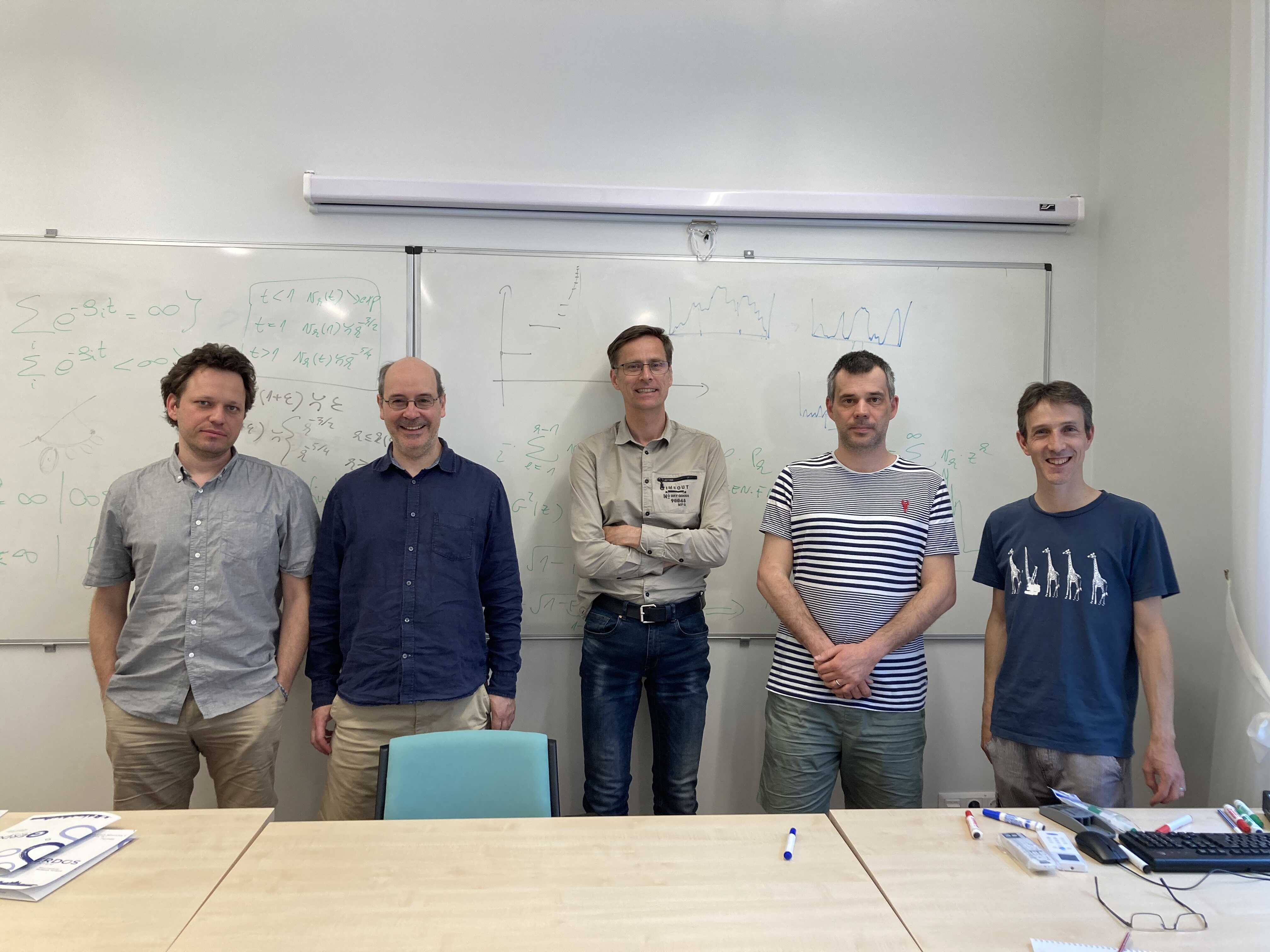Forest Fires, Frozen Percolation and Endogeny
Description
The aim of this focused workshop is to bring together some of the experts that work on dynamic percolation models of self-organized criticality. The time evolution of these random graphs are shaped by two competing mechanisms of opposite effect: addition of edges and deletion of large connected components. The mathematical theory of such models is full of challenges due to the non-local interactions and the lack of monotonicity that these models exhibit. In some cases, even the rigorous definition of the dynamics leads to seemingly paradoxical nonexistence and nonuniqueness results. The mathematics behind such models is very rich as it involves deep questions related to near-critical percolation, local/scaling limits of coalescence processes with explosion/deletion, non-linear PDE, and the question of endogeny of max-type recursive distributional equations and recursive tree processes.
Our goal is to discuss the state of the art, to share ideas and to tackle some of the interesting open questions of this field of research together.

Report from the Organizer, Balázs Ráth:
The focused workshop on Forest Fires, Frozen Percolation and Endogeny took place at Erdős Center from 2022.05.23. to 2022.05.25. (Monday to Wednesday). The organizer of the workshop was Balázs Ráth (BME / Rényi Institute) and the participants were Jacob van den Berg (CWI, Amsterdam), Edward Crane (University of Bristol), James B. Martin (University of Oxford), Gábor Pete (Rényi Institute / BME), Jan M. Swart (UTIA, Prague), Bálint Tóth (University of Bristol / Rényi Institute) and Márton Péter Szőke (BME / Rényi Institute). The programme alternated between presentations (where a participant talked about his recent work and/or posed open questions) and brainstorming sessions involving multiple participants.
The topics that we discussed included new methods to determine the endogeny of recursive tree processes (RTPs) (including the pivotal tree and dynamic RTPs), the local limit process of the stationary mean field forest fire model, multiplicative coalescent with quadratic deletion and its relation to the so-called "rope problem", 2-dimensional finite-volume forest fire and frozen percolation models, the question of endogeny of the one-dimensional inhomogeneous forest fire process and the so-called cycle deleting model.
Participants:
- Jacob van den Berg (CWI, Amsterdam)
- Edward Crane (University of Bristol)
- James B. Martin (University of Oxford)
- Gábor Pete (Rényi Institute / BME)
- Balázs Ráth (BME / Rényi Institute)
- Jan M. Swart (UTIA, Prague)
- Bálint Tóth (University of Bristol / Rényi Institute)
